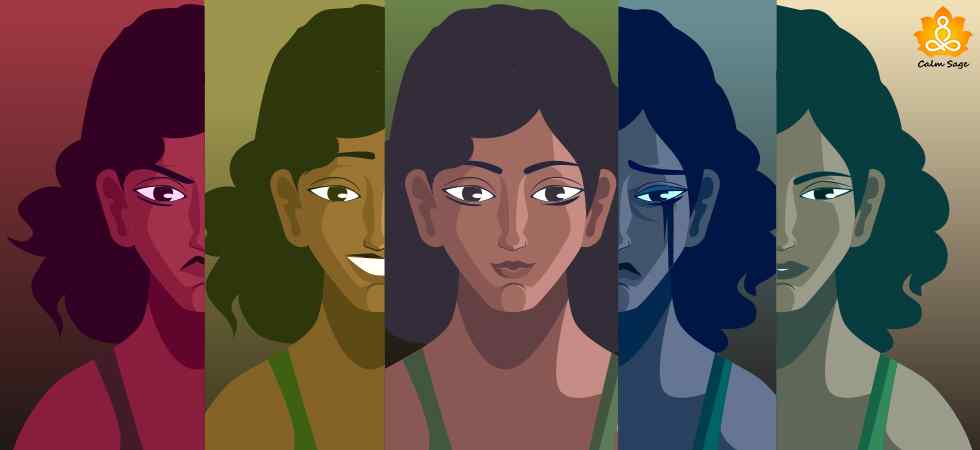All You Need To Know About A BPD “Favorite Person” Relationship

We all have that one person in our lives that we prefer more than anybody but someone with borderline personality disorder can take “favorite person” a tad too much. Did you know that almost 1.4% of people in the United States alone are living with borderline personality?
One of the traits of BPD includes either idolizing or undervaluing others. In some cases, a person with BPD might feel attached to one person; a “Favorite Person”; and may prefer to spend their time with them more than others. This BPD “favorite person” can be a teacher, mentor, partner, family member, or friend.
However, when this “favorite person” of theirs is busy or when an argument happens between them, then this can trigger the fear of abandonment, panic, and anger in the one with BPD. Also, because of this, the favorite person’s relationship may swing between affection and dislike.
Let’s discover what the BPD “favorite person” relationship is, what it looks like, and how to keep the relationship healthy.
What Is a BPD Favorite Person?
For one with BPD, a favorite person is, as the term says, an important person who they prefer over everyone else. The “favorite person” can be their partner, friend, family member, or a therapist even. This “favorite person” is one of the main sources of their validation and happiness and any conflict or disagreement with this person can trigger the one with BPD.
It’s normal for everyone to have a person, who makes them smile, supports them, and even shares all their joys and sorrows but for someone with BPD, the favorite person is everything to them, an anchor who they can’t function without.
A person with BPD experiences mood swings that can leave them struggling for a sense of stability and security. During those moments, they like to seek out their favorite person for the needed stability.
For the one with a Borderline personality, a favorite person may look like a savior and they’ll idolize this person. So when they are apart from them or feel a rift between them, it can often result in an unhealthy attachment, rage, fear, panic, and a sense of abandonment.
Signs Of BPD “Favorite Person” Relationship
The relationship between a person with BPD and their favorite person can be intense. One with BPD can become too dependent on their favorite person for validation, approval, reassurance, and guidance. This kind of favorite person relationship can be unhealthy if there are no boundaries.
Many times, the one with BPD might “read too much” between the lines and might become possessive (even borderline obsessive) and may begin to dominate the relationship. To test the limits, love, and loyalty of their favorite person, they might even push them or test them to prove it.
Here are some signs that you have a favorite person and that you are a favorite person of someone with BPD:
If You Have BPD:
- You experience jealousy when your favorite person spends time with others
- You crave a lot of attention from your favorite person
- You view them as a perfect human without any flaws and might even create fantasies around them
- You are always eager to please your favorite person
If You Have A Loved One With BPD:
- You are your loved one’s first point of contact and they always keep you updated about the little things in their life
- You feel pressured to lighten their mood and almost feel responsible for their behaviors
- You are always offering your loved one reassurance of love
- You feel needed by your loved one with BPD as they always involve you in their decisions
- You think about your loved one before making decisions to avoid future tantrums
Risks Of BPD “Favorite Person” Relationship
Being a BPD “favorite person” and having one can take a toll on your emotional well-being. For example, you may have some intense emotions about the relationship but your favorite person might and that would make you feel low.
Here are some of the common risks of having a borderline favorite person relationship:
- Emotional dysregulation
- The constant fear of abandonment
- Having a codependent relationship
- Neglecting other relationships
- Neglecting hobbies or interests
- Self-harm and other unhealthy coping habits
Tips To Keep BPD “Favorite Person” Relationship Healthy
Not all BPD “favorite person” relationships are unhealthy or doomed to fail. In some cases, having healthy habits and boundaries in the relationship can be supportive and even healing. Here are some tips to help you navigate a “favorite person” relationship:
If You Have BPD
- Label your behaviors: It’s going to be helpful if you could identify and label your behaviors as they happen. Recognize the “favorite person” relationship.
- Focus on other things: Even when you find it hard, try to focus on your other relationships and hobbies. This will help reduce some pressure off of your “favorite person”.
- Think before you act: It’s common to lash out with passive-aggressiveness whenever you feel upset but instead of reacting, pause, think, and then act.
- Acknowledge the hurt: No one is perfect and even your “favorite person” is bound to upset you. Acknowledge the fact that they will anger you or disappoint you. And it’s OK.
If You Are A “Favorite Person”
- Learn to say “NO”: You are not obligated to fulfill your loved one’s every request and give in to their every whim. Despite it, try to set boundaries to take care of your needs as well as to avoid a codependent attachment.
- Focus on other things: Even if you don’t want to accept it, you have a life and it’s OK to focus on the things that do not involve your loved one with BPD. Be firm in your choice and focus on other relationships.
- Avoid making promises: Especially the ones you might not be able to keep. Try to be honest with yourself and your loved one. That’s the best you can do to keep the relationship happy and healthy.
- Seek support: You don’t have to do everything on your own and you are not the only one responsible for your loved one’s emotions. If you’re worried about their safety, it’s OK to seek support from a professional.
What Next?
Living with BPD and being in a relationship with one who has BPD can be challenging but not impossible. If you have BPD, then you might often feel alone in your struggles and might not find comfort in anyone other than your “favorite person”. That’s OK too. The thing to remember is that you can get help and professional support to cope with such feelings.
The right therapy treatment can help you cope with your symptoms of borderline personality and learn how to manage a healthy BPD “favorite person” relationship.
If you are a favorite person for your loved one with BPD, then you can also seek therapy and professional support to learn how to deal with the struggles of codependent attachment, people-pleasing, and constant reassurances.
If you or your loved one is in immediate danger, then contact the 988 Helpline or reach out to your nearest helpline number.
For more, you can write to us at info@calmsage.com or DM us on social media. You can also share your thoughts on the BPD “favorite person” relationship with us in the comments below.
Take Care!
Next Read:
Identifying Borderline Personality Disorder Triggers (And How to Avoid BPD Triggers)
What Is Splitting In BPD? Effects, Examples, And How To Deal With It




















